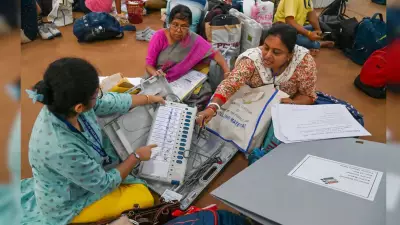
India's prison system faces yet another accountability crisis as recent developments expose deep-rooted official complicity in systemic failures. The pattern of responding to institutional breakdowns with mere token transfers and suspensions has come under sharp scrutiny, raising serious questions about genuine reform.
The Recurring Pattern of Superficial Actions
Official responses to prison scandals have consistently followed a predictable pattern: temporary suspensions, routine transfers, and superficial investigations that rarely address the core issues. This approach has repeatedly failed to deliver meaningful reform or establish proper accountability mechanisms within the correctional system.
The Parappana Agrahara Central Prison case highlights this systemic failure, where despite numerous red flags and previous incidents, comprehensive accountability measures remain conspicuously absent. The institution, like many others across India, continues to operate with the same structural deficiencies that enable misconduct and abuse.
Beyond Tokenism: The Need for Genuine Reform
Merely shifting problematic officials from one location to another or temporarily suspending them without addressing the underlying institutional culture has proven ineffective. These measures serve as temporary public relations fixes rather than sustainable solutions to deep-seated problems.
The November 11, 2025 developments underscore the urgent need for comprehensive prison reform that goes beyond surface-level changes. Experts argue that without addressing the fundamental power dynamics, inadequate oversight mechanisms, and institutional culture that enables misconduct, no lasting improvement can occur.
Systemic Complicity and Its Consequences
The recurring nature of prison scandals points to a broader pattern of official complicity that extends beyond individual bad actors. This complicity manifests through willful blindness, inadequate monitoring systems, and failure to implement existing guidelines and protocols.
When officials at various levels fail to act on early warning signs or ignore procedural violations, they become complicit in the resulting systemic failures. This creates an environment where misconduct can flourish with minimal consequences for those responsible.
The current crisis demands more than just punishing a few visible offenders. It requires a complete overhaul of accountability structures, transparent monitoring mechanisms, and genuine commitment to reform from all levels of the administration. Without these fundamental changes, the cycle of scandal and superficial response will inevitably continue.





